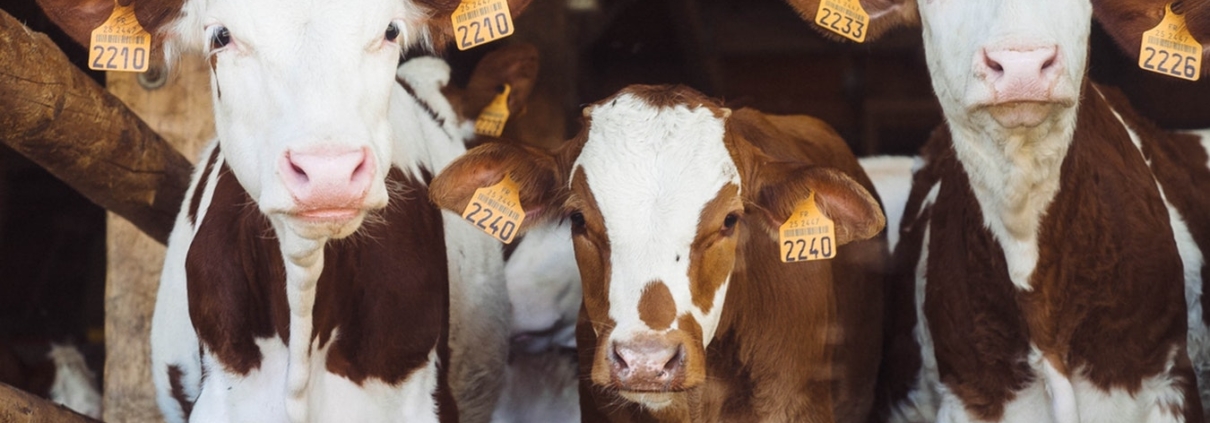The Coming Beef With Meat, GPS SOS, and Make Cars Great Again
Here’s What You Need To Know
School is starting up again and Labor Day weekend is fast approaching, meaning that many Americans will be taking a trip to the store to buy groceries for their end-of-the-summer cookout. With Americans set to eat more meat in 2018 than ever before, it is safe to say that most carts will include beef, poultry, and pork. Yet, there are trends suggesting that the meat industry may soon face a new public affairs challenge – and find itself under attack in the public arena the same way that plastic is today. Because this challenge would not only impact your shopping cart, but may even impact your decisions at work, here is what you need to know about the coming beef with meat:
- How Did We Get Here? The average American will eat 222.2 pounds of meat this year, surpassing a previous U.S. Department of Agriculture record set in 2004. This peak is after several years of increasing meat consumption and reverses a prior trend coinciding with the Great Recession between 2008 and 2012 that saw consumption decrease. As the economy has improved, meat consumption has increased and has again become the target of environmentalists that list meat-eating as the greatest environmental hazard facing earth after fossil-fuel vehicles, despite skepticism about that assertion. Today’s age of digitized, professionalized, and internationalized activism means that meat is only a viral moment away from being on the losing end of a public affairs challenge.
- What Are The Challenges Facing The Industry? The industry has regularly engaged in public policy issues on Capitol Hill impacting its interests, including battles over dietary guidelines advising how much meat Americans should eat as part of a healthy diet. However, the industry’s environmental impact has been under scrutiny and is playing out in the public arena, posing additional risks to the industry as companies mix business with politics, such as when WeWork announced that it would not serve or reimburse business meals with meat for its 6,000 employees in an effort to “reduce their personal environmental impact.” Political stances like these can quickly become accepted should they go unchallenged. Further, due to retaliatory tariffs against its products from the largest foreign buyers, the meat industry has 2.5 billion pounds of meat piling up in cold-storage warehouses, combining trade risk and expanding supply to contribute to “one of the biggest corrections…seen in the industry in several years.”
- How Does Technological Disruption Pose Other Risks? Besides the above challenges, plant-based meat alternatives are growing in popularity. In a sign of their potential, startups producing plant-based meats are attracting investment from the biggest companies in the meat industry, even as other industry stakeholders are taking aim at them. Regardless of whether plant-based alternatives will ever substitute for the real thing, addressing the reputational risks stemming from disruption from so-called “clean meat” will be a major policy priority for the industry going forward.
- What Can The Meat Industry Do To Navigate This Environment? With the meat industry facing challenges on topics as varied as health, environment, trade, and science, the trends may suggest that public opinion will follow and that meat could face the same political and reputational risks facing plastic today. In Europe, there are already proposals to tax meat and even set targets to reduce its consumption, while in the U.S., the Humane Society has called this year’s increase in meat consumption “very disturbing.” Proactively preparing for when that viral moment sets off a broader public affairs challenge will help protect the industry’s reputation, and in the meantime, understanding different stakeholders engaged on the issues important to it will help ensure that legitimate concerns can be addressed, while unrealistic concerns from activists seeking an end to the industry can be ignored.
Whether cooking beef, poultry, pork, or plant-based impossible burgers this Labor Day, the team here at Delve wishes you and your family a safe and enjoyable holiday weekend.
News You Can Use
GPS SOS
Subscribe to Receive Insights
"*" indicates required fields
Contingency plans are a necessary part of mitigating risk when things go array, which is why a recent Bloomberg piece about the lack thereof for the GPS technology the world’s economy depends on was noteworthy. Everything from cell phones, ATMs, and the stock market rely on GPS signals to run properly, which are delicate enough that items in space such as solar flares and debris near satellites, as well as pigeon droppings on receivers on earth, could prevent GPS from working properly – to say nothing of attacks from hostile foreign powers.
While the U.S. Department of Homeland Security mostly says that “it’s up to businesses to make sure they have backup plans,” industries see the protection of this vital technology as a government responsibility. This contingency gap suggests a need for policymakers to proactively shore up GPS vulnerabilities, and in doing so, address the implications of an attack against GPS technology for both the private and public sectors.
SAUDI’S SILICON PLAY
Serving as another example of the power of a tweet, Elon Musk’s two simple words about taking Tesla private, “Funding secured,” rattled the stock market and stunned shareholders. It was then discovered that the Saudi Arabian government were reportedly the ones who “essentially convinced” Musk to consider taking the company private, serving as “another reminder that Riyadh is an ascendant, underrated power player in Silicon Valley finance,” after having already invested in Uber and the SoftBank Vision Fund, and are reportedly considering investing $1 billion in Tesla rival Lucid Motors.
It remains to be seen whether Tesla goes private, particularly because the funding Musk alluded to turns out to have not been so secure, but it is clear the Saudi government’s increasing sway in America’s most innovative sector portends a heightened level of political and reputational risk for Silicon Valley firms who receive investment from sovereign funds of overseas countries.
ALL EYEZ ON SIRI
Between smart devices such as Alexa, Siri, and Google Home, the Internet of Things is using personal information to make homes smarter and lives easier. The “grand bargain,” however, is that people must be comfortable with giving up some privacy to get value from these devices, which is something customers have been willing to do because the makers of such products are considered among the most ethical brands in America.
However, concerns over data and privacy are growing, and customers’ views of these firms are beginning to turn with those concerns. With public attitudes shifting, policymakers and regulators will be freer to begin shaping a regulatory framework for such devices, possibly in a new “grand bargain” in which people will be comfortable with heavier regulation on device makers, even if that lessens innovation and otherwise constrains promising technology.
MAKE CARS GREAT AGAIN
Perhaps in an effort to make cars great again, the Trump Administration proposed a freeze on Obama-era rules for increased fuel economy standards. The result of this proposal was hysteria, requiring the need to take a deep breath and evaluate exactly what the Administration’s action entails and what it would mean. Characterizations of this action as a “roll back” of fuel economy standards is inaccurate because the Administration is proposing to freeze “fuel economy standards at the current 2020 target of 37 miles a gallon.”
Additionally, market distortions enabled by credits for automakers that sell electric vehicles – often at a loss – result in higher prices for SUVs and pick-ups that are then passed onto consumers. This in turn could contribute to Americans keeping vehicles longer, even though they are less-energy efficient than newer vehicles. Given that these standards are a relic of an energy policy implemented in 1975 to address a U.S. oil shortage, long before the shale revolution made the U.S. the world’s largest oil producer, this episode serves as a reminder that regulators cannot predict the future, and that well-intentioned policies can have unintended adverse effects on what they are trying to address.



